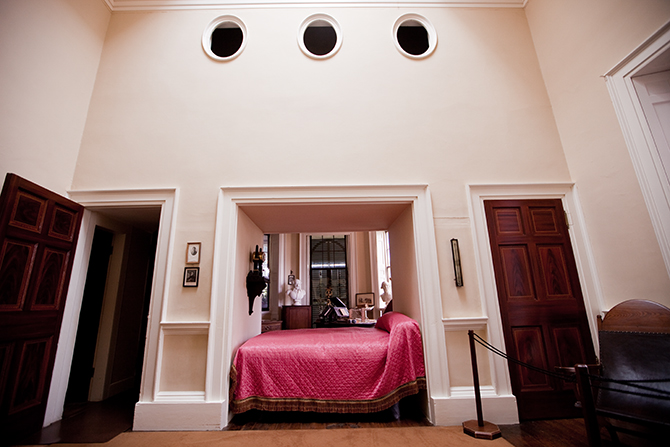An obsession with productivity is an American past time What you know, might know, and probably don’t know about Thomas Jefferson — PART TWO
In my last post, I discussed a few of Thomas Jefferson’s technological lifehacks. In this one, I’m digging deeper into his principles of productivity. My goal isn’t to bathe in his productivity glory, but rather to take a critical look and ascertain things to emulate as well as things to avoid.
Worthy of Emulation
Self-awareness
Being quick to anger (like many of us), Jefferson employed the Count to Ten rule before responding.
And, being realistic, he kept the Count to One Hundred rule on hand too. (How’s that for an awkward pause?)
Emotional intelligence
According to Jefferson:
Pride costs us more than hunger, thirst and cold.
Yup.
Mindfulness
Another one of Jefferson’s sweet maxims:
Nothing is troublesome that one does willingly.
Experiment: Do the dishes just because, then some other time, do the dishes because someone asks you to.
See the difference?
Wherever you are, be there.
As you might expect from someone as productive as Jefferson, he did not like to sit idly, even in the company of others:
[When we’re together,] we should talk over the lessons of the day, or lose them in Music, Chess, or the merriments of our family companions.
Removing needless anxiety
Echoing Epictetus, Jefferson implored people to save their anxiety for things that were certain to happen:
How much pain have cost us the evils which have never happened!
Piece of paper, folded in half. In one column, the things you’re anxious about. In the other, checkmarks for those that actually came to pass. After a few weeks or so, take a look.
Told you.
Organizational efficiency
Jefferson was obsessed with efficiency (perhaps too much so, discussed below.) He was constantly learning how to make things more efficient and well-organized. In addition to the lifehacks described in Part One, Jefferson re-designed the layout of his home and organization of his kitchen based on efficiencies he saw in European manors.
Zero
One of the foremost productivity maxims: An empty mind is a clear mind. What I call the Zero State in my book.
Jefferson practiced this, keeping a little notebook with him at all times. He was very attached to this notebook (not unlike my relationship with my journals), transcribing his notes to a different notebook before erasing and using it again the next day.
Long term thinking
I love this quote. It reflects both long term thinking and the importance of chipping away at big projects:
Take care of your cents: Dollars will take care of themselves!
Worthy of Avoidance
Neglecting the short term world
As I’ve written about at length, long term productivity requires a careful balancing of the short term world’s obligations too.
This includes day-to-day things like paying bills.
When Jefferson died, he was 2.4 million in debt. (Clearly his dollars and cents quote above was purely metaphorical.)
The details (like paying bills) become the big things if we let them.
Having no boundary between work and life
This is a picture of Jefferson’s bed, located directly between his office and living quarters:
Credit: Jim Merithew/Wired.com
Jefferson has this amazing, almost beyond-imagination mansion/palace, and he can’t set aside a quiet part of the house for his work?
Enough said.
Overquantification
Jefferson wrote down and measured everything. Everything. In some ways, this is a good thing. In other ways, this might be a little much:
Never delegating
It is sometimes good and efficient to delegate a task. Yet Jefferson says:
Never trouble another with what you can do yourself.*
*This is also a terrible quote for someone who owned several slaves.
Hustling for the sake of hustling
Jefferson was one of the many people who said:
Never put off to tomorrow what you can do today.
But… that’s not true. Sometimes it makes perfect, long term sense to put something off.
Good planning is good long term planning. Checking off a day’s to-do list is not necessarily checking off a week’s or month’s or year’s to-do list. And it’s the latter that count.
(I’m thinking of writing more about “presidential productivity,” so if you would like to see more stuff like this, please let me know!)

